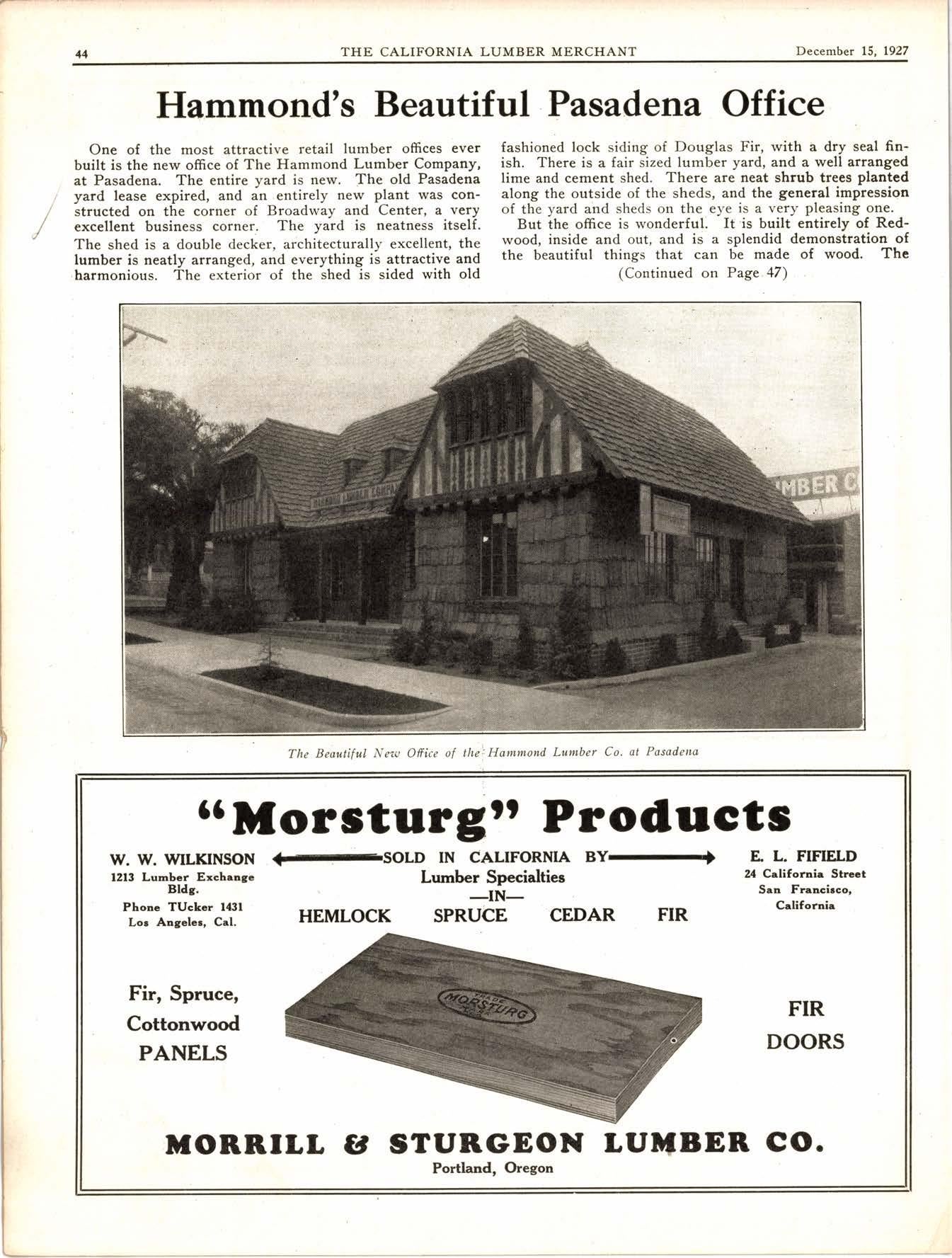
2 minute read
Territorial Rights
Address delivered at the Annual Convention of the California Retail Lu.mbermen's Association.
By Steve Westover, San Gabriel Valley Lumber Co.
Is there any excuse for a wholesaler or manufacturer selling direct?
So far I have been unable to find any excuse for such unethical practice.
Our general business structure has two distinct operations, call them as you will, production and distribution, manufS.cturing and merchandising, or wholesaling and retailing.
The manufacturer produces on a quantity basis and should distribute to the quantity buyer-that is the retailer. He is a specialist in distribution, selling as you know, a certain number of lines from different manufacturers in very much smaller quantities than his original purchases.
This requires an entirely different operation from the manufacturer of individual commodities, and it is only by the concentration of numerous lines that the distributor can make a profitable showing. Should the manufacturer attempt to sell his product in a retail way, it would require him to set up a retail organization of his own that would be more expensive than selling through the usual retail channel, and it is my contention that it is a ruinous policy for a manufacturer to attempt to do business in direct violation of accepted practice.
Are small planing mills or large industries entitled to buy as cheaply as your yard?
We will take the case of the small Planing Mill first. Usually he is financially handicapped to be a quantity buyer, and my answer to this question is for a nearby yard to sell him his requirements at an agreed price, the yard to give the mill as much sash door and cabinet work as is prudent.
Industrial requirements in lumber are usually outside the average run of yard stock, such as crating, shook, pattern stock, shop grade, etc., and if the particular industry is a quantity buyer, the wholesaler is perfectly justified in selling direct. On smaller orders for regular yard stock, the business should certainly go to the retail yard.
Should wholesaler sell one retailer for delivery in another's territory, and do you follow your customer? are two questions that can be answered together. In the San Gabriel Valley and surrounding country, it is our practice to follow the customer, and we can offer no objection to the wholesaler selling one retailer in another's territory, providing the price structure of that particular territory-is maintained. When any of the yards in our organization figure in outside territory we endeavor to find out existing scale of prices and always figure on that same basis.
Do the large city yards sell in your territory? I say they do, largely for the reason that they also follow their customer. The larger yards, who are also wholesalers, do not attempt to disturb our established trade, but gladly work with us to maintain prices on an even schedule.
Unfortunately there are other yards whose favorite cut price and low grade policy causes some disturbance with us elsewhere.










